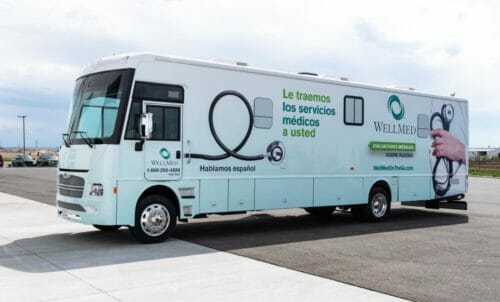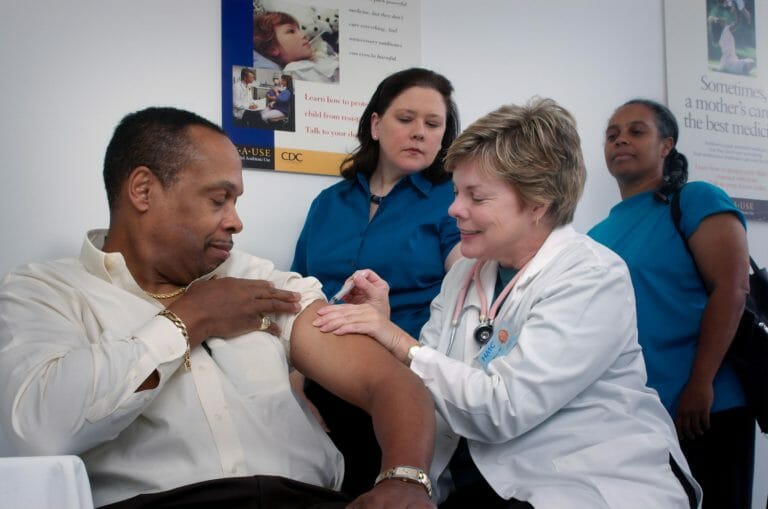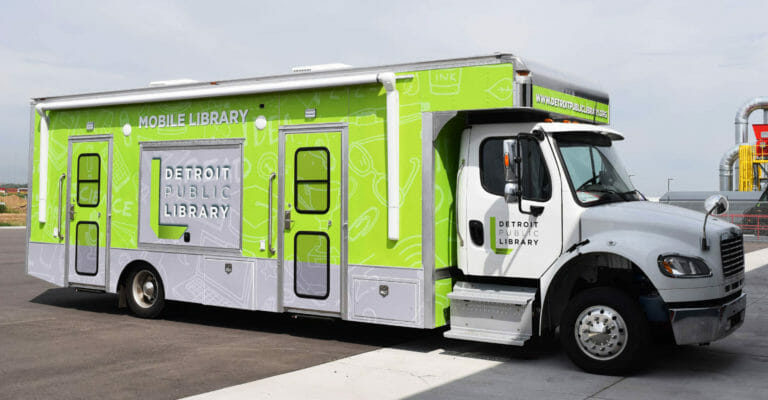Mobile Medical
Why Mobile Medical Clinics Will Still Be Important Post Pandemic
September 7, 2021

During the pandemic, the entire healthcare system underwent an incredible amount of stress. As clinics were backlogged with patients, ERs filled to the brim, and ICU units pushed beyond capacity, the need for mobile medical clinics became clear.
These units mobilized and helped carry the burden that the healthcare system was facing. But with the vaccine rollout and a better understanding of COVID-19, the necessity of mobile medical clinics is far from over. In a post-pandemic world, mobile medical vehicles look to play a vital role in improving the healthcare system and in providing access to medical care for large amounts of the population.
For clinics considering investing in a mobile medical unit, there has never been a better time. The future of the medical world will undoubtedly include the use of mobile units. Let’s take a look at why these mobile clinics are here to stay.
Patients Continue to Prefer Mobile Clinics
COVID-19 forced the world to reconsider how in-person interactions take place. In trying out a new norm, many found they actually preferred the new option.
In the case of mobile medical clinics, this has proven to be particularly true.
In fact, according to a board-certified infectious diseases physician, over 80% of patients that she saw during the pandemic indicated a preference for virtual and home-based care over making a trip to a clinic, and this wasn’t only due to COVID-19 fears.
Additionally, an academic study found that patients felt mobile medical clinics were better equipped to help them navigate the sometimes convoluted healthcare system. These mobile medical units make it easier for patients to access the medical care they need right from the comfort of their own communities.
While people are starting to return to many of the old normals of a pre-pandemic world, they are still demonstrating a preference for accessing medical care from the convenience of a mobile unit.
Bridging Gaps in the Healthcare System
According to an academic study on mobile medical clinics, these units are helping to alleviate the disparities in medical care that exist in vulnerable populations. Often, specific segments of the population are disproportionately affected by chronic illnesses and diseases. This is compounded by a lack of access to nearby healthcare options.
This study focused, in particular, on how mobile medical vehicles are helping to provide all of the following important medical services:
- Easy access to urgent care services
- Preventative health screenings
- Information and assistance with chronic disease management
For many communities that have historically suffered from being underserved by the medical community, mobile medical units are providing a dynamic solution. These units provide a high impact at much lower costs than a traditional brick-and-mortar location.
This will continue to play a critical role in bridging the gap in our healthcare system, long beyond just the reach of the pandemic.
Keep ER Space Available
The pandemic placed a larger strain on Emergency Rooms (ERs), but this burden has long been an issue. The reality is that many people do not have a primary care physician. This portion of the population often relies on ERs and urgent care for their healthcare needs.
The end result is that ERs are backlogged with patients. Nurses must triage patients, attempting to prioritize those in need of immediate attention, resulting in long wait times and frustration for both staff and patients.
This is where the power of a mobile medical unit can come into play. By providing quick, easy access to healthcare services, without the need for a primary care physician, mobile medical vehicles are helping to free up critical space in ERs around the country.
Clinics Recognize the Flexibility of Mobile Units
Beyond just the preference that patients are showing for mobile medical units, clinics are also beginning to recognize the benefits of utilizing these vehicles. Mobile medical units allow clinics an increased amount of flexibility in the services they offer as well as allowing them to expand their service area without requiring an investment in a new office location.
This can help clinics immensely as they consider growth opportunities. Through the use of a mobile medical clinic, physicians and nurses can adjust in real-time to the needs of their community. This is helpful both during and after the pandemic.
Talk to Summit Bodyworks About a Mobile Medical Unit
The future of the medical world will undoubtedly include mobile clinics. These mobile units are offering life-saving services to communities around the country and the globe. At Summit Bodyworks, we are passionate about assisting medical clinics that are interested in adding a new vehicle to their fleet. We have years of experience building high-quality mobile medical vehicles.
Interested in learning more about our work? Check out one of our most recent builds, a COVID response clinic for LA County. Built on a reliable Ford Transit chassis, this mobile clinic helps LA County cut down on time spent waiting for a COVID test or vaccine. With multiple patient bays, a workstation, a Welch Allyn kit for vitals, a sharps container, and a shared medical-grade refrigerator for vaccine storage, this mobile clinic will continue to serve the LA community long after the pandemic lifts.
Ready to unlock the potential of a mobile medical vehicle? Contact our team at Summit Bodyworks to learn more about how we can help.


